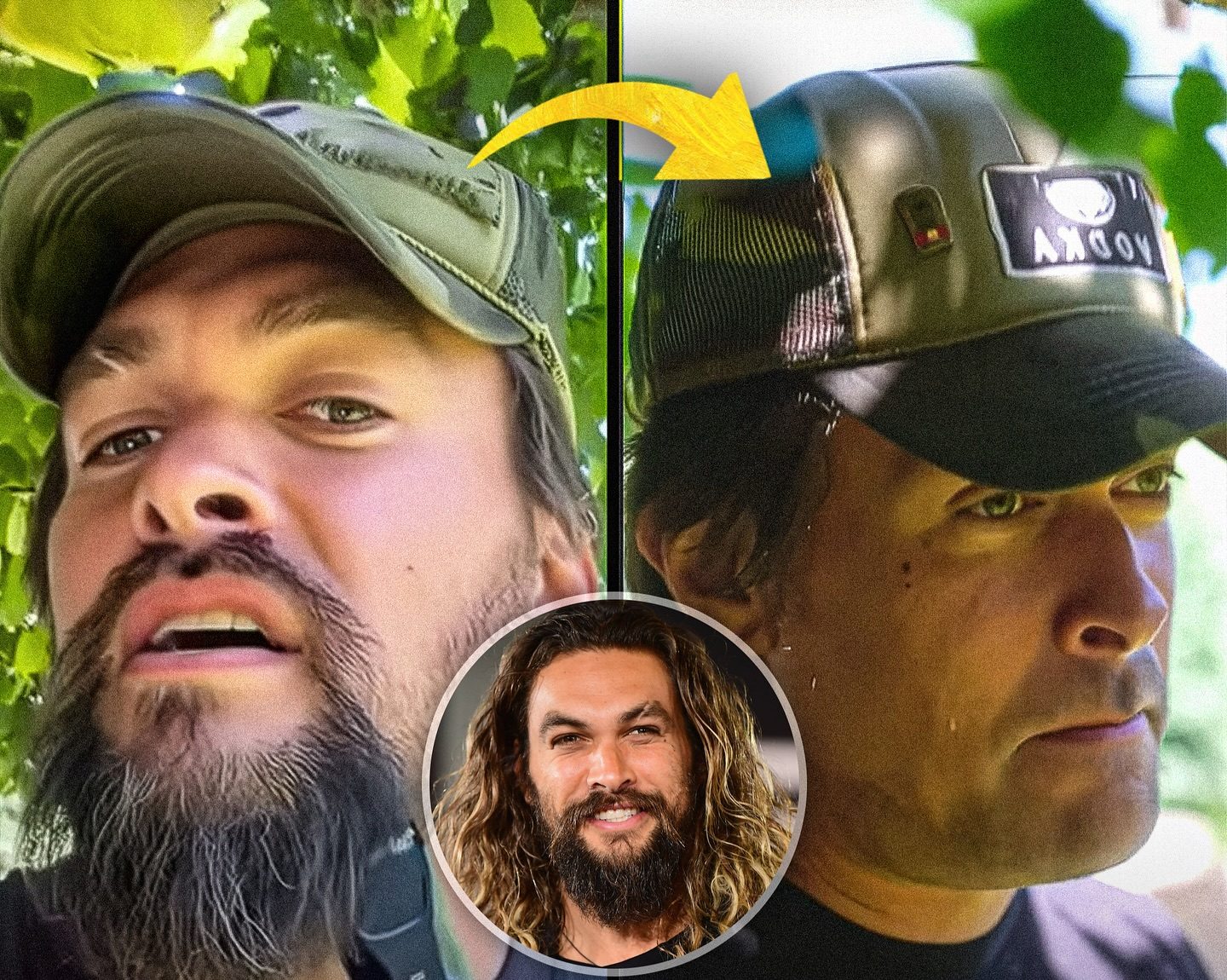Jason Momoa Shaves His Legendary Beard for the First Time in Six Years, Hates the Look, but Does It “Only for Denis” and a Bigger Mission
Jason Momoa’s beard was never just face fuzz. It was Aquaman’s wild pride and Duncan Idaho’s rakish swagger, a living souvenir of motorcycle rides, rock-climbing chalk, and late-night guitar jams. It framed every convention selfie, every red-carpet grin, every “mahalo” to fans. For six solid years that beard felt permanent—until one scorching July morning when Momoa pointed a phone at his own reflection, pressed record, and committed follicular treason. A minute later the screen filled with flying clippings, a half-shocked, half-laughing Jason, and the sharp intake of breath heard ’round the internet. The man was clean-shaven.
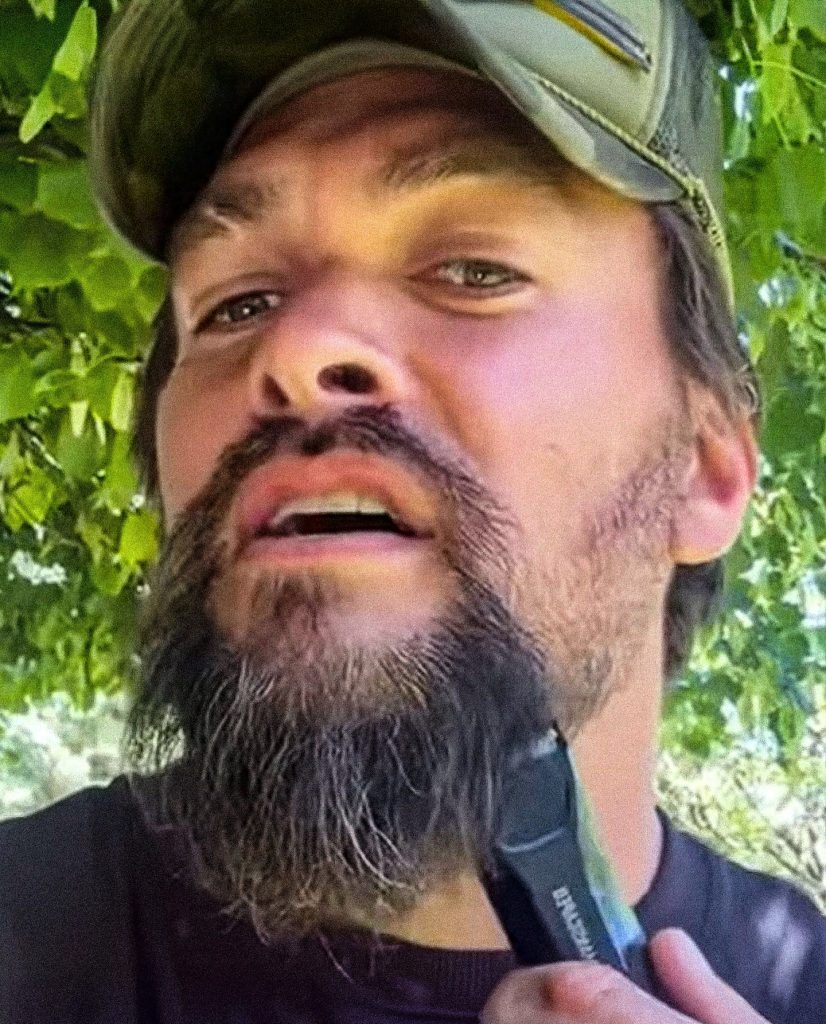
I watched the Instagram video on mute first, because a coworker was talking, and even without sound it felt disorienting. His jawline looked suddenly younger yet weirdly unfamiliar, like seeing a friend after they’ve buzzed off shoulder-length hair. You could track the emotional beat in real time: that first swipe of clippers, the wide-eyed disbelief, the muttered “Goddammit, I hate it,” and finally the resigned smirk. For a second he looked straight into the camera and shrugged: “Only for Denis.” Anyone who’s followed the Dune saga knew what he meant—Denis Villeneuve, the director who introduced Momoa’s swashbuckling Duncan Idaho in Part One and apparently has a resurrection planned for Part Three. Duncan can’t have a beard, so the beard had to go.
Plenty of actors have dramatic makeover moments, but this one felt personal for fans because Momoa’s beard was practically co-billed in his roles. Remember the tidal-wave posters for Aquaman? Half of the memes were just beard jokes. Even when he popped up on Saturday Night Live in 2022, the writers built an entire sketch around beard-centric masculinity. Over time the whiskers became a shorthand: lumber-sexual charm, eco-warrior authenticity, no-frills physique. Losing it was like a rock star smashing the guitar before the encore—it left you cheering and mourning at once.
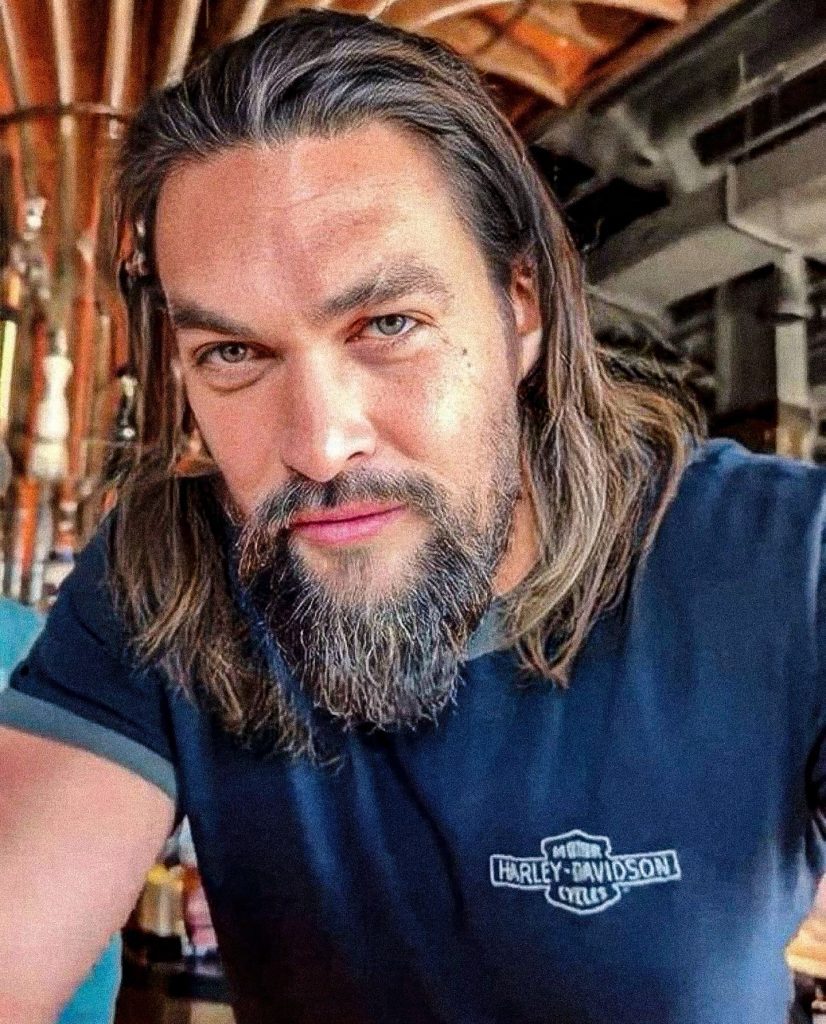
The day the clip went live, the comment sections turned into a collective therapy session. One fan typed in all caps, “WHO IS THIS CLEAN-SHAVEN STRANGER AND WHAT HAVE YOU DONE WITH MY SEA KING?!” Another posted side-by-side screenshots: bearded Jason labeled “dad vibes,” and fresh-faced Jason labeled “scary hot PE teacher.” My favorite reaction was the paradoxical lament: “I hate it, keep it forever.” Meanwhile industry outlets pumped out headlines faster than whiskers hit the sink. The Cut called it “torture”—tongue firmly in cheek—and E! News assured readers he shaved “absolutely only for the movie.” Variety tracked the moment frame by frame, while Reddit exploded into polls debating which version of Momoa should be considered canon.
But buried beneath the fan frenzy was a more deliberate message. After the shave, Momoa pivoted to talk about Mananalu, the aluminum-bottled water company he founded back in 2019 when he first trimmed his facial hair for an ocean-conservation PSA. He hasn’t changed his tune since. Between takes he flashed recyclable cans, shouted out plans to expand plastic-free distribution, and thanked people who had recently swapped single-use bottles for reusables. Watching him flip from self-deprecation to activist mode felt almost seamless—a reminder that the beard might come and go, but the mission is fixed.
Still, you can’t ignore the cinematic catalyst. Duncan Idaho’s return was once just a hopeful rumor among Dune aficionados. In Herbert’s original novel the swordsman dies, but later books (and apparently Villeneuve’s script for Part Three, loosely adapting Dune Messiah) reveal a cloned version. Momoa practically winked at the camera when he said, “If you didn’t read the books, that’s on you.” The beard’s sacrifice became instant proof: Duncan is back, contracts are signed, cameras will roll soon enough, and Villeneuve wields enough persuasive power to make a Hawaiian superhero shave in midsummer.
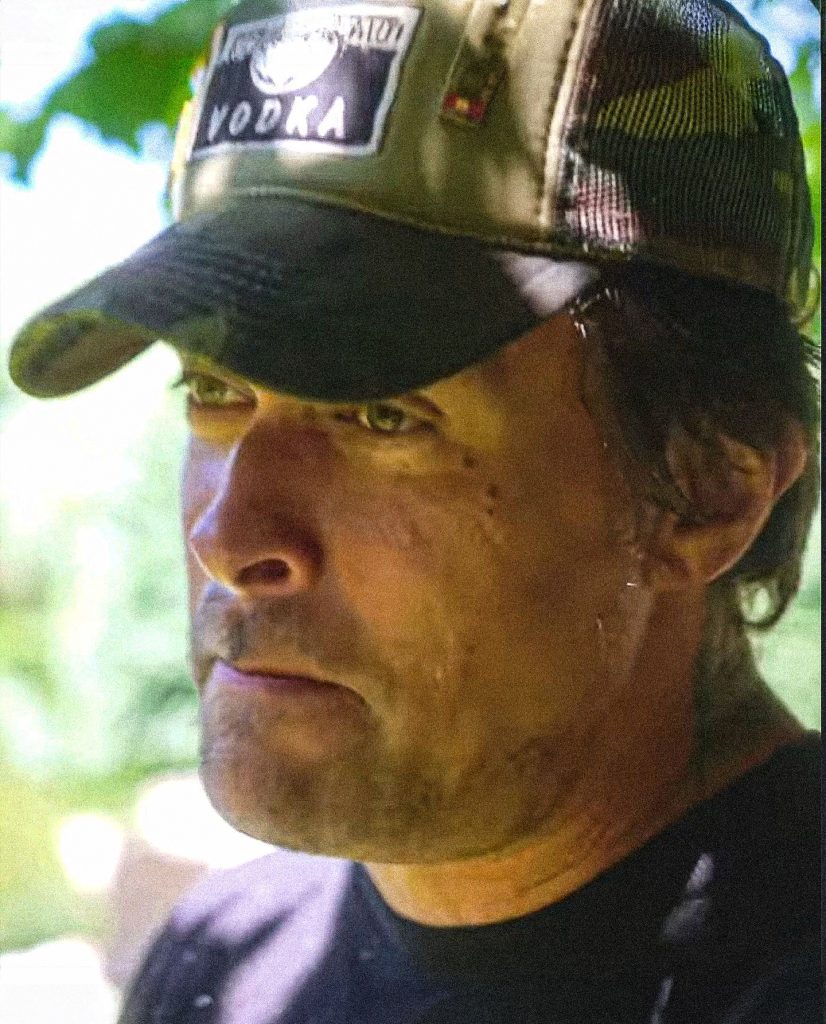
The pop-culture shockwave also revived the evergreen beard-or-no-beard debate. Grooming experts on TikTok weighed in on the maintenance myth: is a heavy beard really more work than razor burn? Dermatologists chimed in about skin pH adjusting after long-term coverage. Environmental commenters pointed out that millions of disposable razors end up in landfills every year—another subtle push toward sustainable metal safety razors or electric trimmers. Even barbershop podcasts got philosophical, arguing that a beard can become a mask if you let it define you for too long.
Meanwhile, Momoa’s friends trolled him mercilessly. Chris Pratt reposted the clip with the caption “Who’s this?” and a laughing emoji. Dwayne Johnson wrote, “Welcome to the cold-face club, brother,” followed by a reminder to moisturize. Lisa Bonet, his former partner, stayed publicly silent—no surprise—but tabloid writers still spun a dozen imaginary quotes. As for Momoa himself, he spent the next 24 hours ducking paparazzi, wearing a bandana across his chin, and posting Stories of ocean dives, evidently daring photographers to follow him into the Pacific.
By day three the shock dulled and nuance crept in. Some fans admitted they could get used to the new look; it highlighted cheekbones they’d forgotten existed. Others insisted the beard would grow back well before the Dune premiere next summer. Grooming brands reached out with sponsorship offers, probably hoping to capitalize on the conversation. A men’s-lifestyle site published a speculative timeline: at his known growth rate, Momoa could return to his former fuzz within six months—plenty of time for Aquaman 3 reshoots, should they require the iconic scruff.
Underneath the spectacle is a quieter story about image, identity, and the weird intimacy of celebrity. We don’t actually know Jason Momoa, but we’ve projected a version of him anchored by that beard: rugged, tribal-tattooed, carefree, a little wild. Watching him strip that away on his own terms reminds us that actors are shape-shifters first and foremost. Yes, he loved the beard; yes, he hated parting with it; but he also values his craft enough to disrupt his public persona. And maybe that’s the lesson fans can pocket: style can be precious without being permanent. Sometimes you let go, trust the process, and grow again.
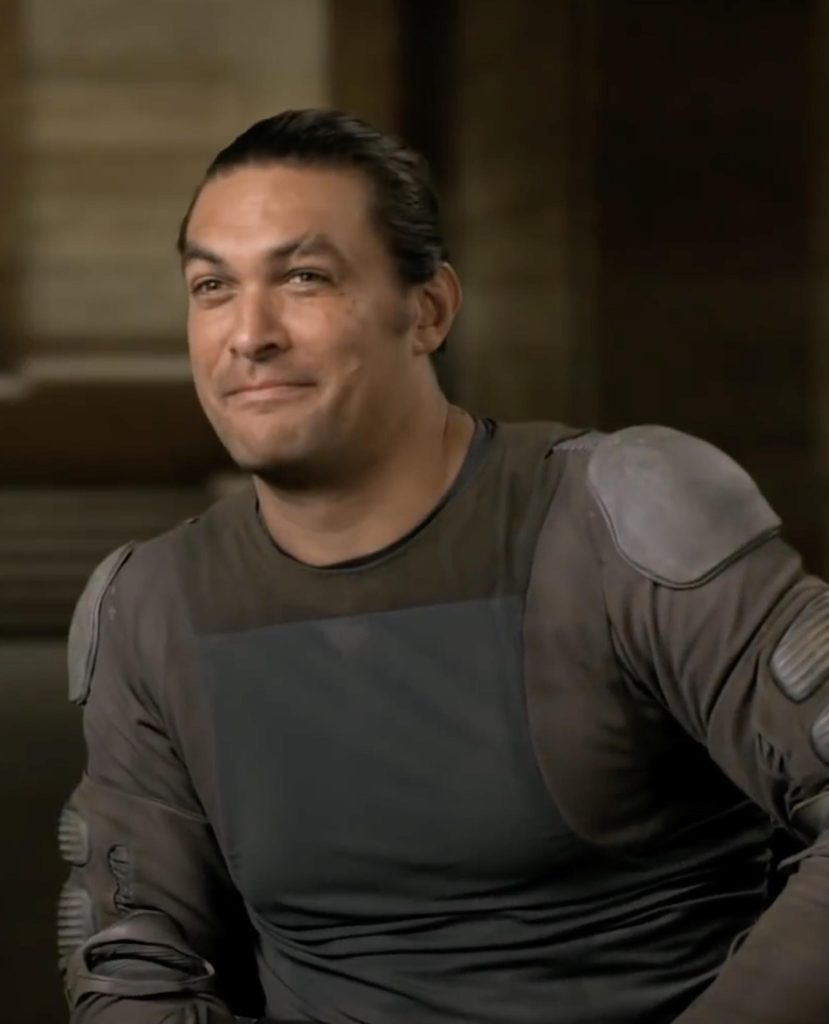
I keep replaying one offhand line Momoa muttered while flicking away hair clippings: “Gotta keep surprising ’em.” It wasn’t said with bravado—more like a mission statement whispered to himself. He’s surfing a career wave that lets him bounce from superhero blockbusters to art-house thrillers, from environmental activism to metal-band cameos. Holding too tightly to any trademark look might pin him down. So he shaved. He surprised us. And in the dead silence after the clippers stopped, you could almost hear the next chapter clicking into place.
Will the beard return? Almost certainly. Hair grows, roles change, tides turn. But that first glimpse of a bare-faced Jason Momoa in six long years will stay lodged in pop-culture memory, a screenshot ready for future “remember when” montages. More important, it sparked exactly the ripple he wanted: breathless headlines feeding into conversations about sustainable water, plastic waste, and the everyday choices we make. In the end, Momoa’s face became a billboard not just for Dune but for an eco-conscious mindset he’s been preaching when the cameras aren’t rolling.
So here’s to the beard, absent but not forgotten, and to the man brave enough to wield a razor in full view of millions. Here’s to fans learning that idols are allowed to evolve. And here’s to Denis Villeneuve, who apparently holds the only scissors Jason Momoa truly fears. The next time you scroll past that viral video, watch the very last frame. He smiles—soft, self-conscious, completely exposed—and then he laughs at himself. That laugh says everything: change is weird, but it’s also how new stories begin.

